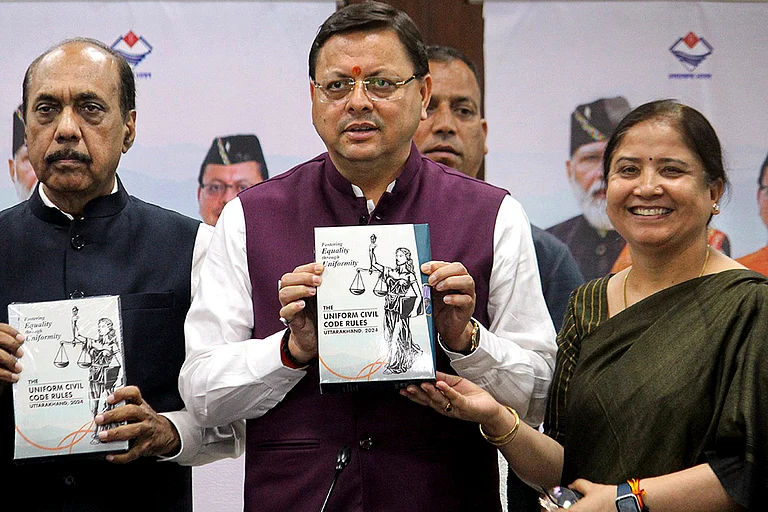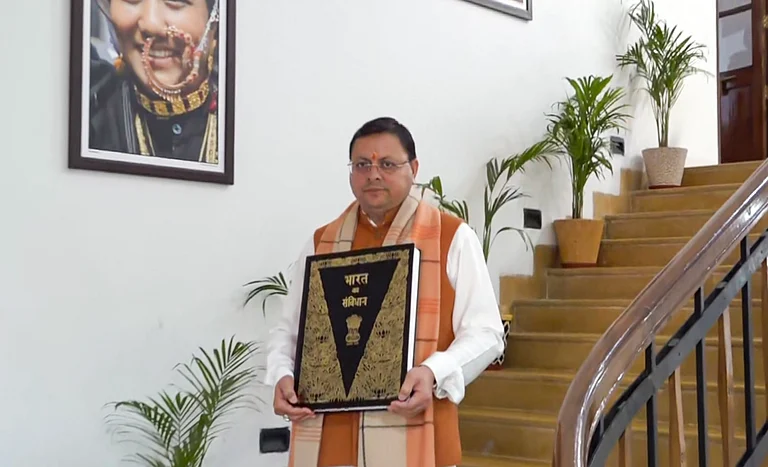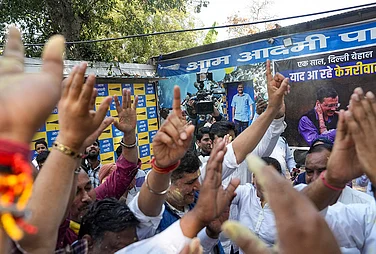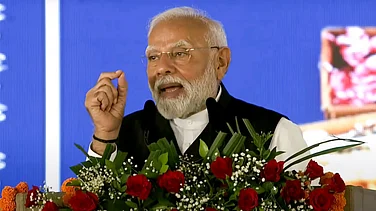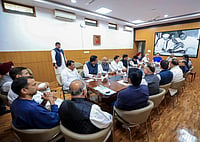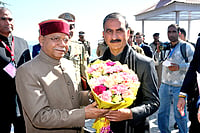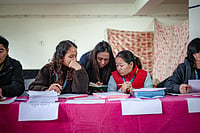As Uttarakhand‘s BJP government is all set to introduce a ‘landmark’ legislation on the Uniform Civil Code (UCC) in the assembly, whose special session is underway at Dehradun, all eyes are on some of the contentious provisions of the draft bill relating to marriage, divorce, inheritance, and adoption in various religious communities in the state -- which has a predominantly Hindu population.
With the state cabinet having already given its approval to the move, Chief Minister Pushkar Singh Dhami on Monday appealed to political parties to extend constructive support to the bill once it was tabled in the state assembly on Tuesday. The bill is not against any particular section or religious group, Dhumi maintained.
Here, he also cited Prime Minister Narendra Modi's vision of 'Sab ka Saath, Sab ka Vikas, Sab ka Prayas, Sab ka Vishwas' and 'Ek Bharat, Sreshtha Bharat'. “The whole nation is looking up to Uttarakhand with a lot of hope and curiosity. The UCC is a very important legislation not just for Uttarakhand but for the whole country. The nation, as a whole, in fact, was waiting for a long time to see such a measure (passing of the bill) happening. The bill will come up in the House tomorrow (Tuesday). My appeal is to all parties to participate and help in giving a legal shape to this important legislation,” he said.
The proposed legislation is based on recommendations of a high-powered UCC committee led by Justice Ranjana Prakash Desai, a retired Supreme Court judge, which submitted its voluminous report to the Chief Minister last week.
Ironically, the report has not yet been made public but some of its recommendations suggest a ban on the practice of polygamy and polyandry, besides fixing a uniform age of 18 and 21 years for the marriage, as had already been prescribed in the law.
A key member of the committee (on the condition of anonymity) told Outlook, “The report, which runs in four volumes and 740 pages has some landmark recommendations relating to marriages, divorce and also inheritance. Though we have kept tribals out of the preview of the draft yet it provides equal rights on inheritance to women and men in terms of ancestral property.”
There is a new provision in the draft saying that in the case of a husband's death, the widow will be eligible for inheritance. She will also be responsible for the upkeep of her elderly in-laws but if she remarries, the assets/ compensation will be reverted to her former husband's parents.
“We have legalised live-in relationships but it will be recognisable only if both the partners are of marriageable age. They have to get the relationship registered. It is punishable if mandatory conditions are not met. They will be required to inform their parents too. The children born out of this relationship will be legitimate and entitled to full rights of inheritance like those born out of marriages. The couples will also have the right to adopt,” the member said.
The legislation, the member maintained, will strike gender equality in all matters, regardless of religion, in terms of marriages, divorce, adoptions, and inheritance but bans polygamy and polyandry.
“Practice Halala, iddat, and triple talaq (under Muslim personal law) are banned in the draft. There are penal provisions prescribed for those resorting to its violations. We have not used the word Halala categorically but said marriages without pre-conditions. Tribals, who form 2.9 per cent of Uttarakhand’s population like Tharu, Bhotiyas, and Jaunsari are natives of border districts viz Chamoli and Pithoragarh, have been excluded,” the member revealed.
Meanwhile, PCC spokesperson Garima Mehra Dasauni has raised questions on the legislation being termed a “uniform Civil Code” (UCC). "How can you say it’s uniform when BJP-RSS combine has picked up just one state –Uttarakhand, to use it as its Hindutva Laboratory ahead of the Lok Sabha polls?" She accused the BJP of attempts to polarise the peaceful state of Uttarakhand and disturb harmony. "This is also an attempt to divert public attention from real issues, failures of the Dhami government, and non-performance," she said.
Former member of the Uttarakhand Bar Council Advocate Razia Beg wondered how a live-in’ relationship can be legalised and given credence when the draft targets some of the accepted practices governed by the Muslim Personal Law.
“The legislation is discriminatory as also unconstitutional. It targets Muslims, which is the agenda of the ruling party for winning the elections. Everyone knows that the Lok Sabha elections are nearing and they have to do something or other like this to win the election,” she says, adding that the Muslim groups, who are peacefully opposing the move, are being served notices.
“I have also been served notice and asked to seek bail even as I have not done anything to disturb the peace," says Razia, who is also a member of the state's minority panel.
Nevertheless, Dhami assures that the legislation will be good for all the sections, religious communities, and people of Devbhoomi Uttrakhand. "No one should feel worried about the provisions. Once the bill is introduced in the House, all the doubts will be cleared," he reiterated.
The introduction of the legislation is a major poll promise that the BJP made in the 2022 Assembly elections in Uttarakhand. After the electoral victory, the government had set up an expert panel, which had taken sufficient time to compile the report after a lot of public interactions.
With the ruling BJP having 47 members in the 70-member House, the Uniform Civil Code bill, is likely to have a smooth passage.
Meanwhile, confrontation has already started building up between the ruling party and the opposition Congress at Dehradun. A day before the UCC bill was supposed to be introduced, the Congress, which has 19 MLAs in the House, lodged a strong protest over the move to waive off question hour in the House, which they termed as a violation of the rules for the conduct of the House. The MLAs met the Governor in the day and submitted a memorandum seeking his intervention.









